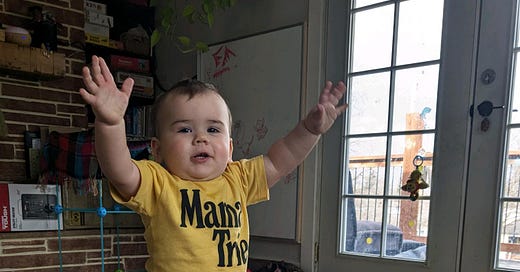Let me start by saying that I’m not a policy expert, but I am a mom who works with moms as a Doula and Craniosacral Therapist. I see and feel first hand the impact of the lack of support for mothers and families in the US, both institutionally and culturally. Policy follows culture, so my intention with this writing is to start conversations that can change the culture around families, change the stories we tell ourselves, the way we think, and act.
How do I talk about motherhood in the US in a way that doesn’t feel like screaming into the void? I’m feeling disheartened by the state of my country. By the blatant lack of institutional care for mothers, babies, and families. Especially for the first 5 years. It’s getting better, slowly. At least where we live in Mo…
Keep reading with a 7-day free trial
Subscribe to Sexy as a Mother to keep reading this post and get 7 days of free access to the full post archives.




